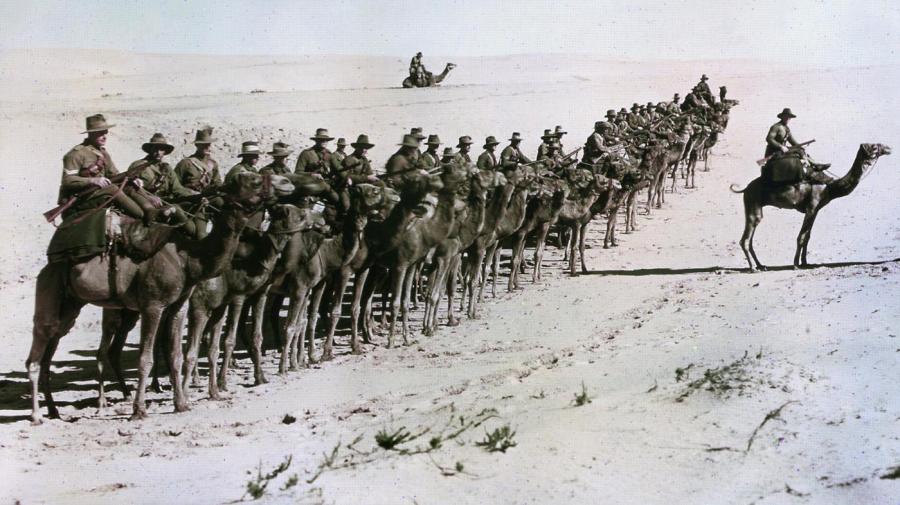How Did Imperialism Contribute to World War I?

In World War I, imperialism caused increased tensions among European nations as Germany sought to gain power by vying for more control over the colonies in Africa.
Imperialism refers to an imbalance of power in the political sphere, usually among nations. It happens when a stronger nation takes over a weaker one and seeks to gain control of its people, economy and culture. Imperialism increased throughout Europe after the Industrial Revolution, as the European nations competed with each other over resources and the production of goods.
Imperialist Motives
Imperialism is caused by the five motives of religion, economy, exploration, ethnocentricity and politics. Prior to World War I, economic imperialism was rampant. The Industrial Revolution, which brought increased production and trade to Europe, played a significant role in setting the stage for conflict. As European nations looked to expand their economies, they relied more heavily on a steady supply of raw goods from the African colonies. Tensions rose in particular between Germany, France and Britain as Germany struggled to gain power in Africa. Exploration was also a motivating factor, as the power-hungry European nations wanted to conduct scientific and medical excursions in the lands that they owned. They also wanted to beat their competing imperial rivals in those missions.
Ethnocentricity, or the belief that one group is superior to another, drove intense nationalism that caused clashes among nations during World War I. Politically, imperialism leads nations to compete with others for supremacy. This motive combines national security, prestige and national pride. During World War I, political imperialism dominated military blocks and alliances that nations formed against each other.
Religion can also play a role in imperialist power struggles, as nations seek to force their religions on races perceived to be inferior, within their own borders and abroad.
The Effects of World War I
The effects of imperialism spread throughout Europe, and ultimately led to a breakdown of the peace accord that European leaders agreed to at the 1814 meeting of the Congress of Vienna. As peace fizzled out, military blocks formed between competing countries, and the tensions between Austria and Serbia grew to a larger scale. Germany, which wanted to assert its dominance as a European power, aligned itself with Austria and Hungary in an attempt to prevent Russia from gaining dominance in Europe. War broke out when the Austrian-Hungarian Empire declared war on Serbia. Germany declared war first on Russia (which had sided with France and England to keep Germany’s power in check), and then France. In declaring war on France, Germany launched its attack through Belgium, which was previously a neutral party.
Ultimately, World War I spread to the rest of the world. By the time it ended, it involved the United States, the Middle East, Italy and Japan. The war resulted in the destruction of many imperial dynasties, including Germany, Turkey and Austria-Hungary. A shaky peace treaty, drafted at Versailles in 1919, managed to keep peace for less than two decades before a second world war broke out. In addition to crippling nations, World War I caused the deaths of millions of soldiers, and injured more. It also enable the spread of devastating diseases such as small pox and influenza.





